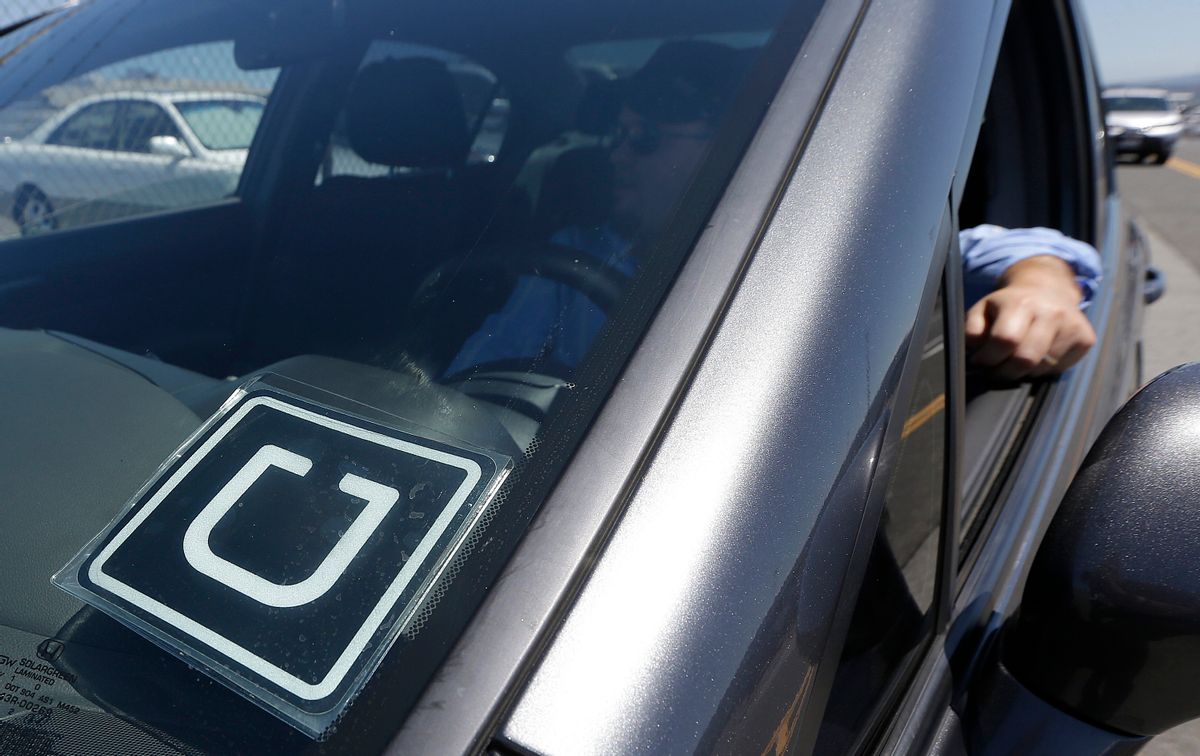On Wednesday, the European Union officially declared what most of us have understood all along: Uber is a transportation business. Thus it should be subjected to the same regulations as other transportation businesses.
The E.U. highest court issued a statement which read: "The service provided by Uber connecting individuals with non-professional drivers is covered by services in the field of transport. Member States can, therefore, regulate the conditions for providing that service."
Why is this a big deal? While Uber argued that it was a "technology platform" and thus not subject to the same rules as a taxi service, the E.U.'s ruling means that the company may face stricter licensing rules and have to treat its employees as workers, not contractors — in other words, treat them better (and pay them better). The horror!
The ruling, according to a New York Times report, only applies to the EU, but could set a more prominent precedent worldwide for policymakers trying to figure out where the gig economy fits in and the rules these so-called marketplaces need to follow.
“It’s normal that authorities don’t know what to do — they can’t just issue regulations anytime somebody claims to operate a new business model,” Valerio De Stefano, a law professor at the University of Leuven in Belgium, told the Times. “The litigation will lead authorities to better understand what is the reality of the work in the platform economy.”
According to the official order, Uber will now be "inherently linked to a transport service." In September 2017, the company lost its license to operate in London.
This could not come at a worse time for the company, which is currently held under the power of a new chief executive, Dara Khosrowshahi, who has big ambitions for the company — including taking it public in 2019 and revamping its culture, which has been overwhelmed by sexual harassment allegations and shocking reports of unlawful corporate espionage.
In a statement provided to the Times, Uber said that the ruling will have little impact on the company. They believe they are already legally operating under the transportation law of most European countries.
But perhaps it is not the impact on Uber but the impact it will have on taxi companies. Already, taxi companies around Europe are lauding the ruling as a victory, in that Uber will have to play by the same rules as they do.
Local European taxi company Elite Taxi Ben in Barcelona, who brought the case forward, tweeted,"Hoy los Taxistas hemos vencido a Goliath" which translates to, "Today we have beaten Goliath."



Shares